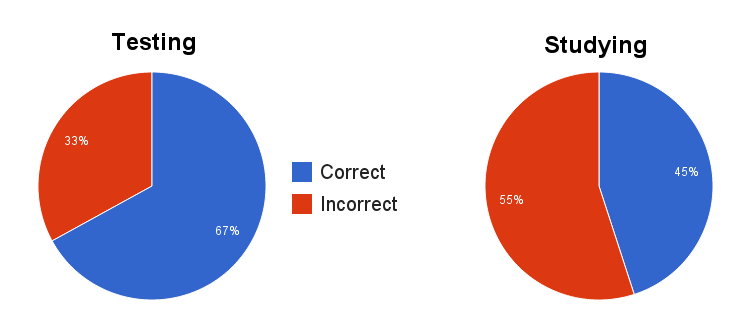
[1]
Retesting helps people make inferences
One of the oldest and greatest puzzles of all is the phenomenon of transfer of learning, or “the influence of prior learning (retained until the present) upon the learning of, or response to, new material”…
If initial learning produces better retention of information and numerous retrieval routes to access that information, it should increase the probability of a match between the cues given in the transfer task and the stored memory trace, thereby increasing the potential for transfer to occur.
Test-enhanced learning is based on the finding that taking a test on previously studied material produces better retention over time relative to restudying that material for an equivalent amount of time…
…four experiments examined whether test-enhanced learning, a method that has been shown to increase long-term retention…, can be used to promote transfer to new inferential questions about previously studied material.
The primary goal of the present research was to examine whether repeated testing promotes superior transfer relative to repeated studying.
Repeated testing produced superior retention and transfer on the final test relative to repeated studying.
…the… benefits of test-enhanced learning… extend to the transfer of knowledge [to] new inferential questions within the same knowledge domain…, or new inferential questions from different knowledge domains…
… testing may promote transfer because it increases the retention of information, which makes the recall component of transfer possible… However, repeated testing may also improve people’s understanding of the material, enabling them to better perform the execution component of the transfer process (i.e., the ability to apply the knowledge to a new situation).
Retesting using rephrased questions didn’t work
A secondary goal of the present research was to explore whether repeated testing using rephrased questions would lead to better retention and transfer than repeated testing using the same question. … the results… do not support this hypothesis. Although the results… do not support the encoding variability hypothesis, they do not invalidate the hypothesis either. The broader literature contains mixed results: Some studies have found evidence to support the notion of encoding variability…, whereas others have failed…[2]
- Akresh-Gonzales, Josette. “What Is the Testing Effect, and How Does It Affect Learning, Knowledge, and Retention?” KnowledgePlus.NEJM, 14 May 2015, knowledgeplus.nejm.org/what-is-the-testing-effect-and-how-does-it-affect-learning-knowledge-and-retention/. Accessed 18 Nov. 2016.
- Butler, Andrew C. “Repeated Testing Produces Superior Transfer of Learning Relative to Repeated Studying.” Journal of experimental psychology. Learning, memory, and cognition 36.5 (2010): 1118-1133.